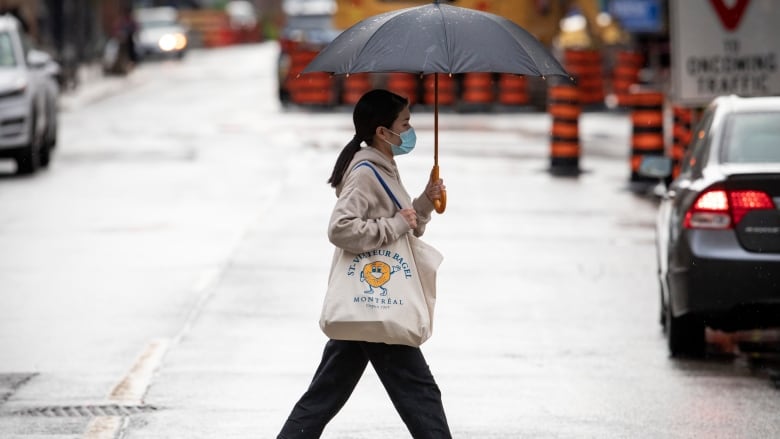Ontario logs fewest new COVID-19 cases since September as delta variant seen in all regions
Delta variant of concern now confirmed in all 34 public health units

Ontario reported 469 additional cases of COVID-19 on Tuesday, the feweston a single day since last September, while other key indicators suggest the third wave of the pandemic is largely subsiding.
Today's case count is the lowestsince Sept. 26, 2020. While Tuesdays frequently have the fewest newcases of any day of the week, test positivity rates continued to decline week over week.
Labs completed 17,579 tests for SARS-CoV-2, the virus that causes COVID-19, and Public Health Ontario logged a provincewide positivity rate of 2.7 per cent down from last Tuesday's 3.6 per cent on just over 20,000 tests.
The seven-day average of daily cases fell to 703, its lowest point since Oct. 10, 2020.
The news comes in the wake of the Ontario government'sMonday announcement that it would move most of the province into the initial phase of its newest reopening plan three days ahead of schedule. Some restrictions on outdoor gatherings of different kinds, patio dining and indoor retail are set to be lifted at 12:01 a.m. ET on Friday, June 11.
Porcupine Health Unit, which covers as vast swath of northeastern Ontario, continues to see a concerning number of new cases, particularly in remote communities. Based on consultations with the local public health officer, provincial officials said yesterday, restrictions there will remain in place for the time being.
Dr. Barbara Yaffe, Ontario's associate chief medical officer of health, said the province has sent resources to Porcupine, such as help with contact tracing efforts, and also increased vaccine supplies to the region.
WATCH |Ontario reopening on Friday 'clearly the right move,' expert says:
Delta variant found in every public health unit
Meanwhile, another 1,010 infections were marked resolved in today's report, putting Ontario's active caseload at about 7,378, down from nearly 43,000 at the peak of the third wave.
It should be noted, though, that the province considers cases to be finished after two weeks, and therefore the official figure for active cases does not account for many people who continue to suffer from symptoms of COVID-19for longer periods of time.
As of yesterday, there were 481 people with COVID-related illnesses being treated in intensive care units, including about 30 who were transferred from hospitals in Manitoba. Thatis a level not seen in Ontario since early April, but still more than were in ICUs at the peak of the second wave earlier this year.
Of those in ICUs, 305, or about 63 per cent, needed a ventilator to breathe.
The Ministry of Health also recorded the deaths of 18more people with the illness, pushing the official toll to 8,887. The seven-day average of daily deaths rose somewhat to roughly 17.3.
In what was hailed as a positive development by many infectious disease experts, Ontario's COVID-19 Science Advisory Table recently revised its estimate of the share of new cases being caused by the delta variant.
The table now says the variant of concern accounts for about 15 per cent of new infections, rather than its previous estimate of roughly 27 per cent.
That said, officials confirmed Monday that cases of the delta variant have now been confirmed in all of the province's 34 public health units. There havealso been several outbreaks at long-term care homes where residents had already received a first dose of COVID-19 vaccines, said Yaffe.
The delta variant has been shown to be more transmissiblethan the so-called alpha variant that fuelled Ontario's third wave. It may also cause more severe illness and an increased chance of death, experts say.
Critically, first doses of currently available vaccines appear to be less effective at preventing illness from the variant. Dr. Lawrence Loh, the local medical officer of health in Peel Region, told CBC News the effectiveness ranges between 33 and 55 per cent.
That has prompted Loh, as well as local politicians in Peel and Toronto the two regions where the delta variant is gaining the most ground to call on the province to divert more doses of vaccines to hot spots over the next several weeks.
Public health units collectively administered another 158,209 doses of COVID-19 vaccines yesterday, the most-ever on a Monday.
More than 70 per cent of Ontarians aged 12 and older have now had at least one shot, while roughly 9.1 per cent of that same group are fully vaccinated.













_(720p).jpg)


 OFFICIAL HD MUSIC VIDEO.jpg)
.jpg)



























































































